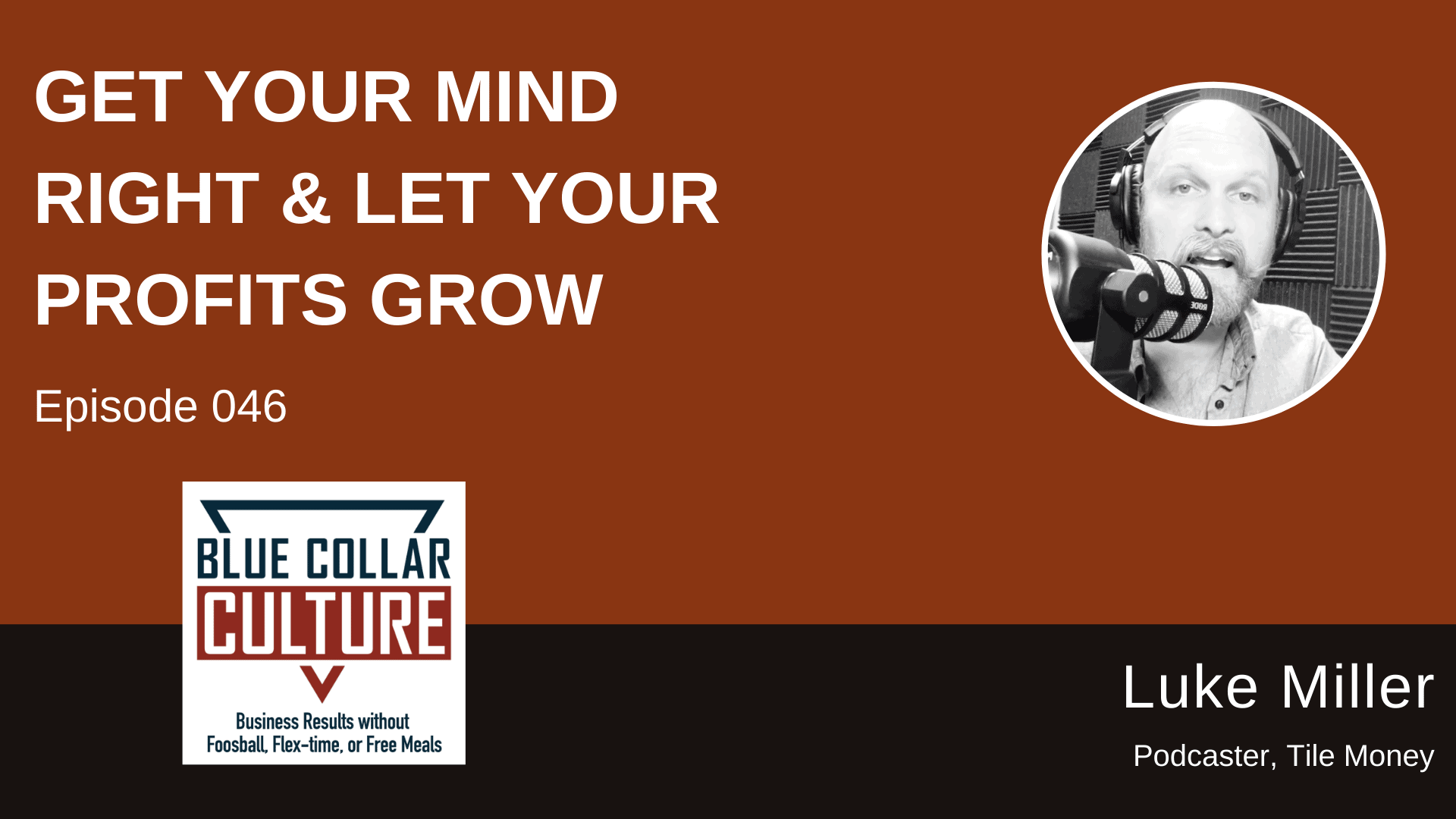Luke Miller, founder of Tile Money and host of the Tile Money Podcast, may work primarily with tile installation contractors (as the name of his business suggests), but the customer service, pricing, management, and other lessons he passes on apply to any contracting business.
One thing that tile installers – not to mention people in other trades – struggle with, says Luke, is that some consumers, because of what they’ve seen on home improvement shows, think DIY is easy. That leads to unrealistic expectations about the time a job takes and more.
By the same token, many contractors feel that because they’re experts in the technical work and they have the tools… starting a business should be easy enough.
But being an entrepreneur actually requires a whole other mindset and skillset. We get into that in detail with Luke in this episode, as well as…
- The biggest unknown every new business owner faces – and how to find the answer
- How to actually start running a business instead of just “doing the job”
- What you must have in place to work less but make more money
- The dangerous consumer misconception that impacts contracting businesses
- And more

